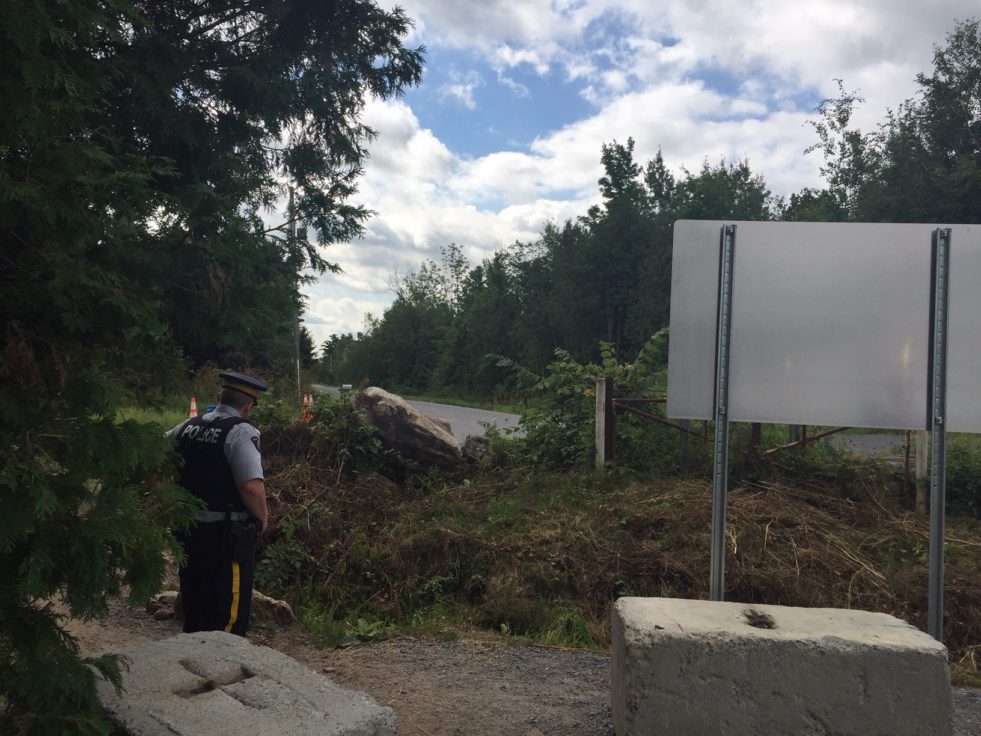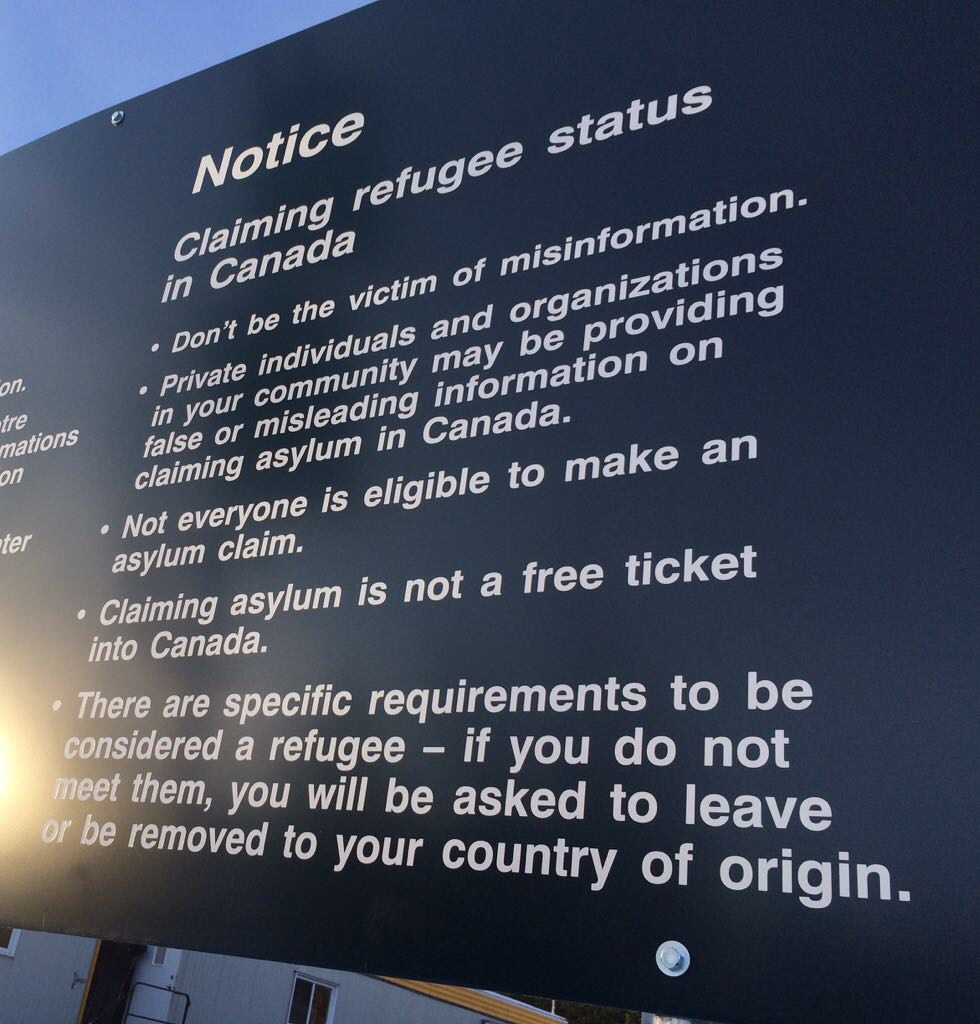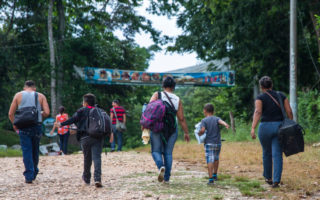
An RCMP officer stands guard at the Canada-U.S. border at Roxham Road. ©UNHCR/Gisèle Nyembwe
18 months after having crossed the U.S.-Canada border irregularly, a Haitian refugee is doing what it takes to succeed in Canada
By Gisèle Nyembwe in Montreal, Canada
Pierre reaches into his backpack and searches calmly through a bunch of documents. He takes out a piece of paper. It is wrinkled; a sign he has been looking at it often. His face lightens up. It is the decision of the Immigration and Refugee Board of Canada (IRB) that recognises him as a refugee. This decision represents so much more for him: a new life free of any fear or persecution for his political activities in his home country.
The 48-year old man, who used to work for Oxfam Quebec in Haiti, is one of the estimated five thousand Haitians who, in the hot summer days of 2017, walked into Canada via Roxham Road at the U.S.-Canada border. Together with these Haitians, some 20,000 people crossed into Canada via Roxham Road that summer, making it the main entry point into Canada for asylum seekers crossing the border irregularly.
“I had no other choice,” he says. “I had to leave the U.S. The fear to be sent home just became unbearable. I am happy to be in Canada and I want to succeed. I know, I am going to have a lot of work to do.”
Pierre was recognised as a refugee in May 2018 because the IRB assessed that he faced a risk to his life due to his political involvement as a supporter of an opposition party in Haiti.
His fears of being killed is informed by a personal tragedy. In July 2012, his younger brother was brutally murdered in downtown Port-au-Prince. The inquest revealed that it was a mistaken identity murder: Pierre was the target. His brother was killed because of Pierre’s political activities.
Pierre admits the decision to move to Canada was a scary one. Misinformation was circulating within the Haitian community. He did not know what would happen to him as somebody having crossed the border irregularly. But he had no alternative.

Large sign at the Canada-U.S. border at Roxham Road informing potential asylum seekers about the process of claiming refugee status in Canada. ©UNHCR/Denise Otis
“It’s sad I had to leave my country in the first place. Haiti has invested in me. All my education, I went to public schools. I owe all what I am today to my country,” he states. “I am not saying I regret being here. I am safe here and everyone I’ve met here has been very welcoming and supportive, but I want to succeed here too.”
With the support of La Maison d’Haiti, Pierre found his first job, a month after having received his work permit in Canada. Having done well, he was a few weeks later given a more senior and permanent job at a clothing warehouse. The federal government issues work permits within 30 days of the asylum application being made. This allows asylum seekers like Pierre to rapidly start earning wages and live independently without relying on social benefits while going through the asylum process.
La Maison d’Haiti offers various programmes, including legal counsel referrals, designed to help refugees get on their feet and regain their autonomy. Through its job fairs, it matches refugees with potential employers across the region.
Pierre is keen on doing well in Canada, but succeeding his integration remains a constant preoccupation for him. For now, he is proud to be able to take care of himself, rent his own place and send a bit of money to his son in Haiti.
But he wants more. This is why he applied to the College Ahuntsic for an 18-month intensive programme in the field of legal technician. He plans to find a night job that will allow him to go back to school full time during the day.
“The principles say it: If you are a good citizen in your home country, you will be a good citizen of humanity. If you have a good upbringing, training and education, you will follow through,” he tells UNHCR.
For more information about what happens at the border, please check:
- What to know about irregular border crossings
- Irregular arrivals at the border: background information Jan – Sept
- Border crossing myths – can you bust them?
Pierre’s name has been changed for confidentiality reasons.





